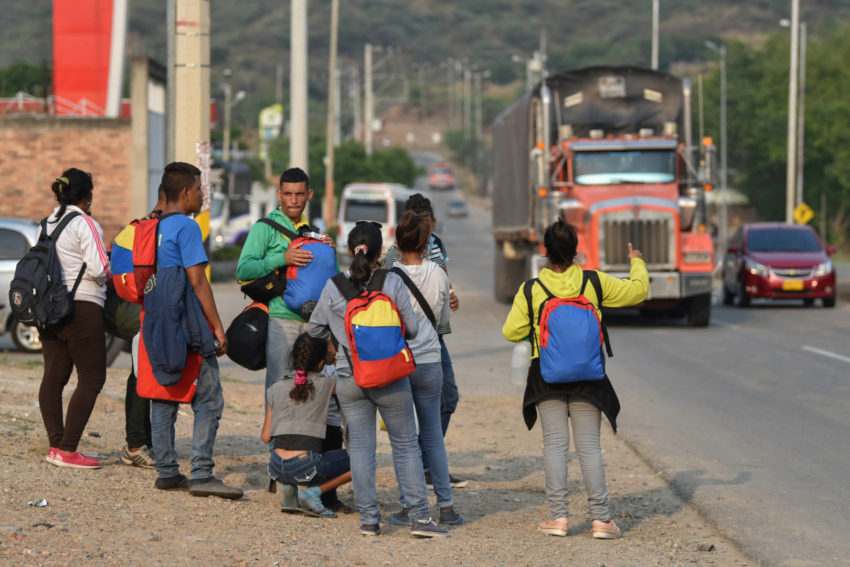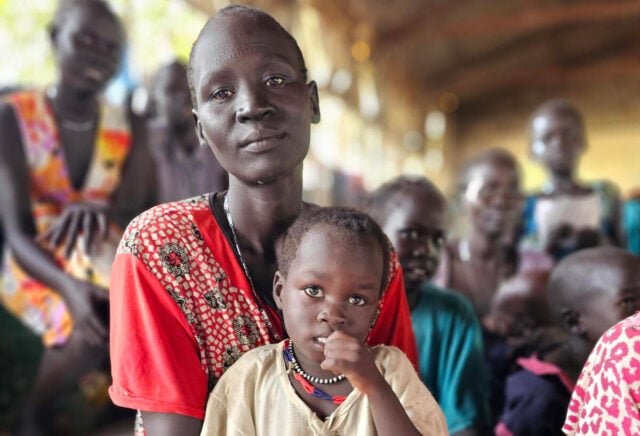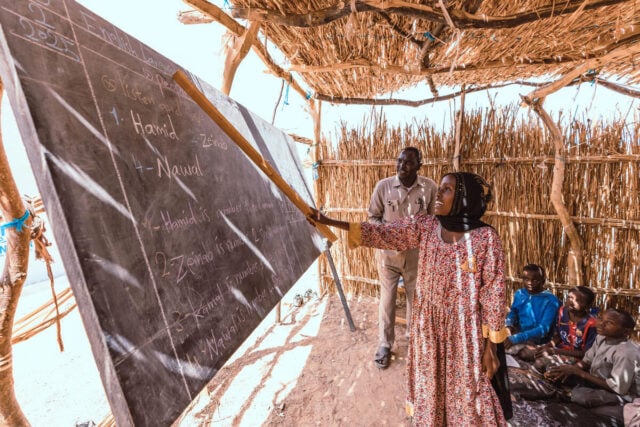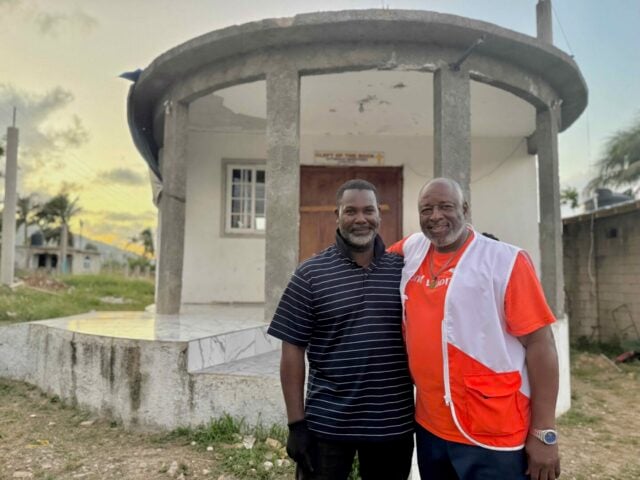Every Venezuela migrant has a deeply personal story about why and how they left their country. They say after months and years of struggling to make ends meet, there came a turning point.
Power cuts, no running water, and shortages of food and medicine made the decision to leave inevitable. With two jobs or even three, many Venezuelans found it impossible to make enough money to live. When a month’s wage won’t buy lunch, what do you do?
With passports and work permits, they walk across the Simon Bolivar bridge into Cucuta, Colombia. Without papers, they pay a small fee to walk wooded trails beneath the bridge to cross the river. The Colombian national police watch, but don’t stop them.
Some Venezuelans cross the border into Colombia to find jobs and send back money to their family. Others wait to leave until there is nothing else they can do but starve.
The people and possessions they leave behind — ailing mothers, hungry children, untilled fields — are also the burdens they can’t put down.
Some plan to return when things are “normal” again. They want to reclaim their homes and build back farms and businesses. Others say they have lost too much to ever go back.
Here are some of their stories.
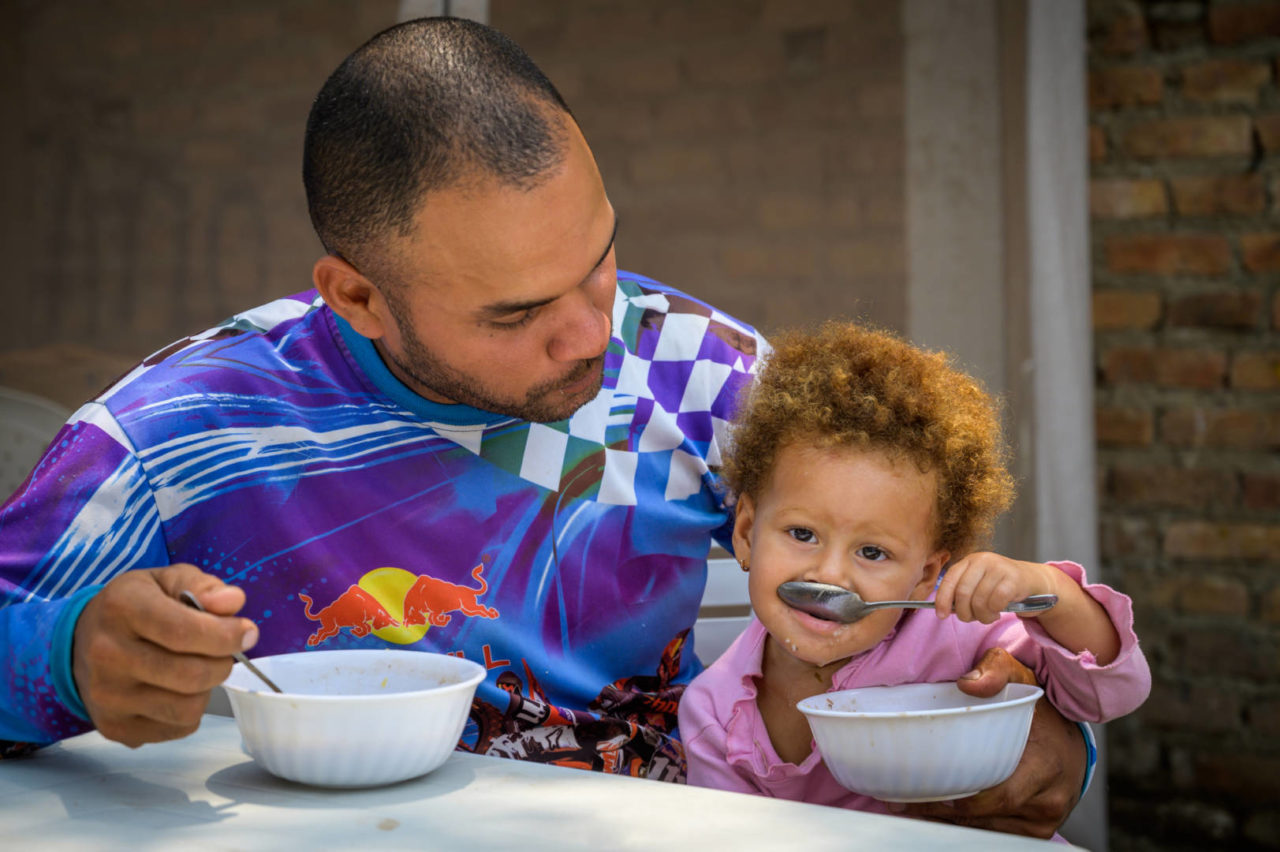
With great care, Hector Mendoza, 32, feeds his 18-month-old daughter, Josemeth, at a soup kitchen near the Colombia–Venezuela border. “I’ve been working in Colombia almost her whole life. I don’t want to be separated from her and my wife again,” he says.
Hector, a mechanic, came to Colombia to earn enough to support his family back in Lara state, Venezuela, about a 12-hour bus ride from the Colombia border.
“I finally saved up enough money to buy bus tickets, but the bus broke down after six hours, and we had to find another way to get here to the border,” says Hector.
Now, he’s caring for Josemeth, while his wife buys tickets for them to travel to Bogota and to Cali where he has a job waiting.
“If things get better in Venezuela, I’d love to go back. I have a piece of land near my mom, and I’d like to have a house on it. But for now, at least we’re together, even though we’ve lost everything else.”
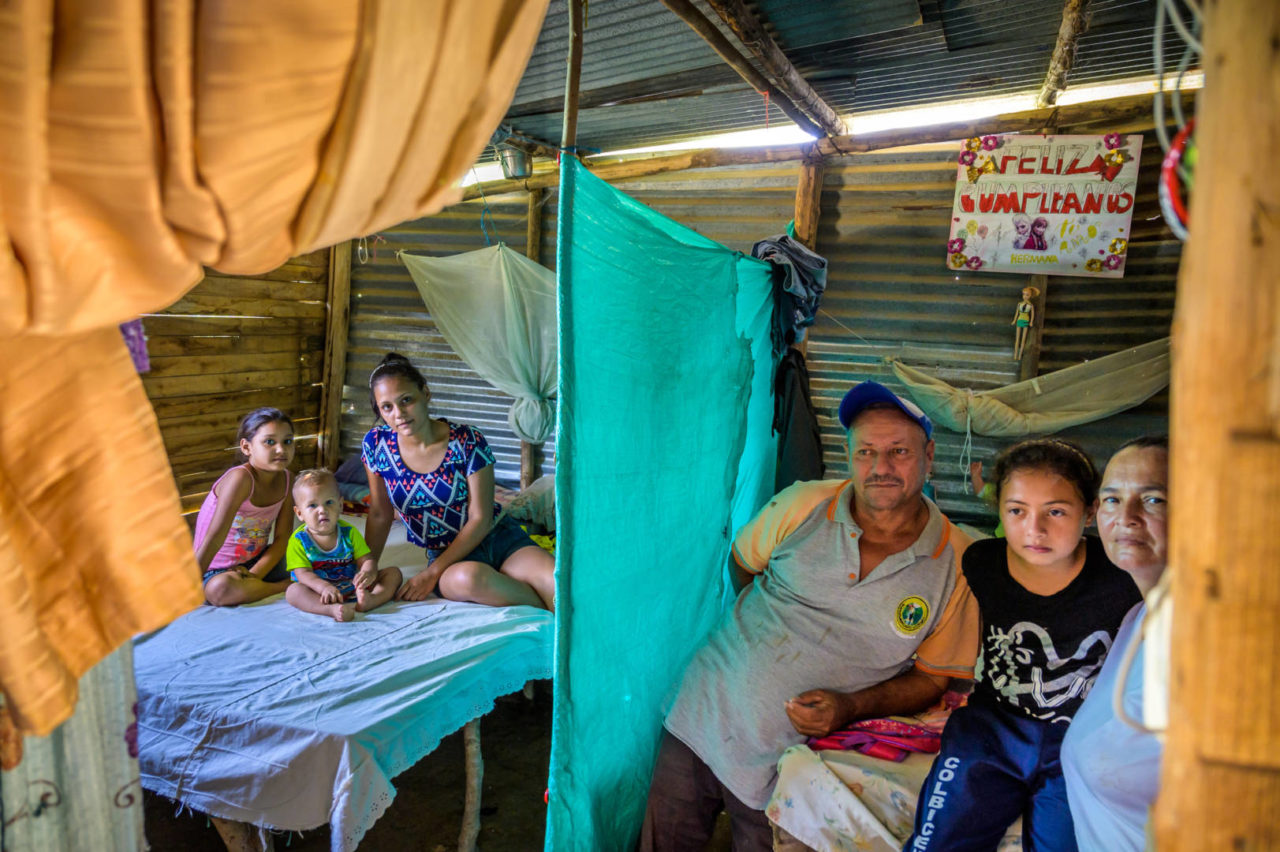
Mariairene, 48, (far right with family members), gives thanks to God and to World Vision for what little she has. Food vouchers from World Vision came at a critical time as over several months, 10 people from her family left Venezuela and moved into a three-room rented house outside Cucuta, Colombia.
“I have a house and land back in Venezuela, but we couldn’t make a living, so we came here,” she says.
Now their only income is the $100 monthly salary her son earns while working at a chicken plant, but he’s on a three-month trial period. She prays he’ll be able to keep the job. “We have to pay rent, food, and everything out of that. It is a challenge to survive on that income,” she says.
They can’t afford gas for the stove, so Mariairene gathers wood to burn and cooks in the yard. With the landlord’s consent, she has planted beans in the tiny backyard.
“We will go on, with God’s help,” she says. “I dream of going back to Venezuela, if everything got fixed there. But there are a lot of people here in the same situation we are. A lot of people are going without.”
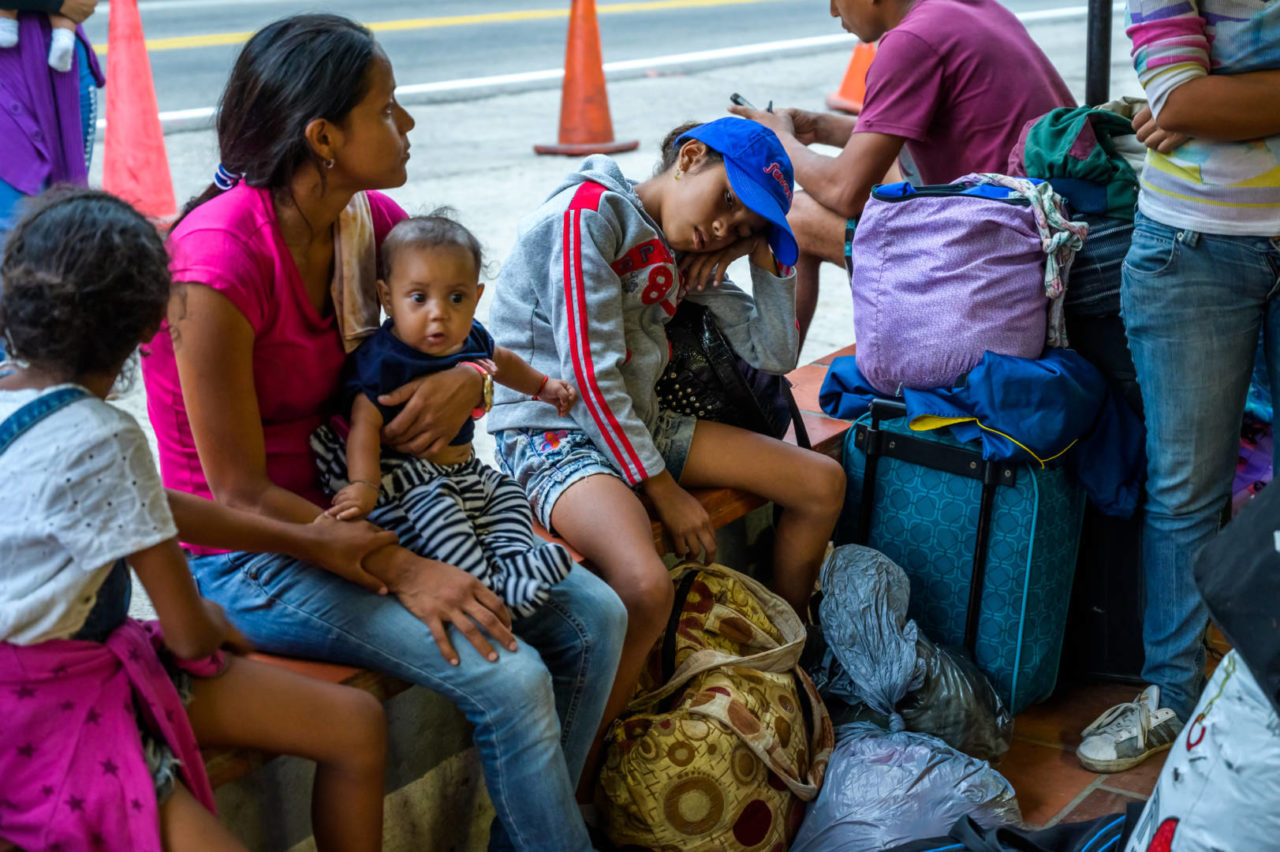
After crossing the border from Venezuela to Colombia, a group of about 10 Venezuelan migrants rests on the side of the road. Two of the children in the group are younger than 6 months old. They’ve walked all day and will spend the night at a shelter where they can shower and sleep with a roof over their heads.
“This is what happens when you can’t make enough money to feed your family. You have to leave any way you can,” says the group leader. “Since we crossed into Colombia, people have been very helpful and kind to us.”
The migrants are from different parts of Venezuela. They met along the way and decided to walk together for safety. Some walked for more than two weeks before reaching the border.
The next leg of their journey will be the most difficult. They’ll be climbing the steep roadway to elevations up to 12,000 feet, where the temperatures can be below freezing.
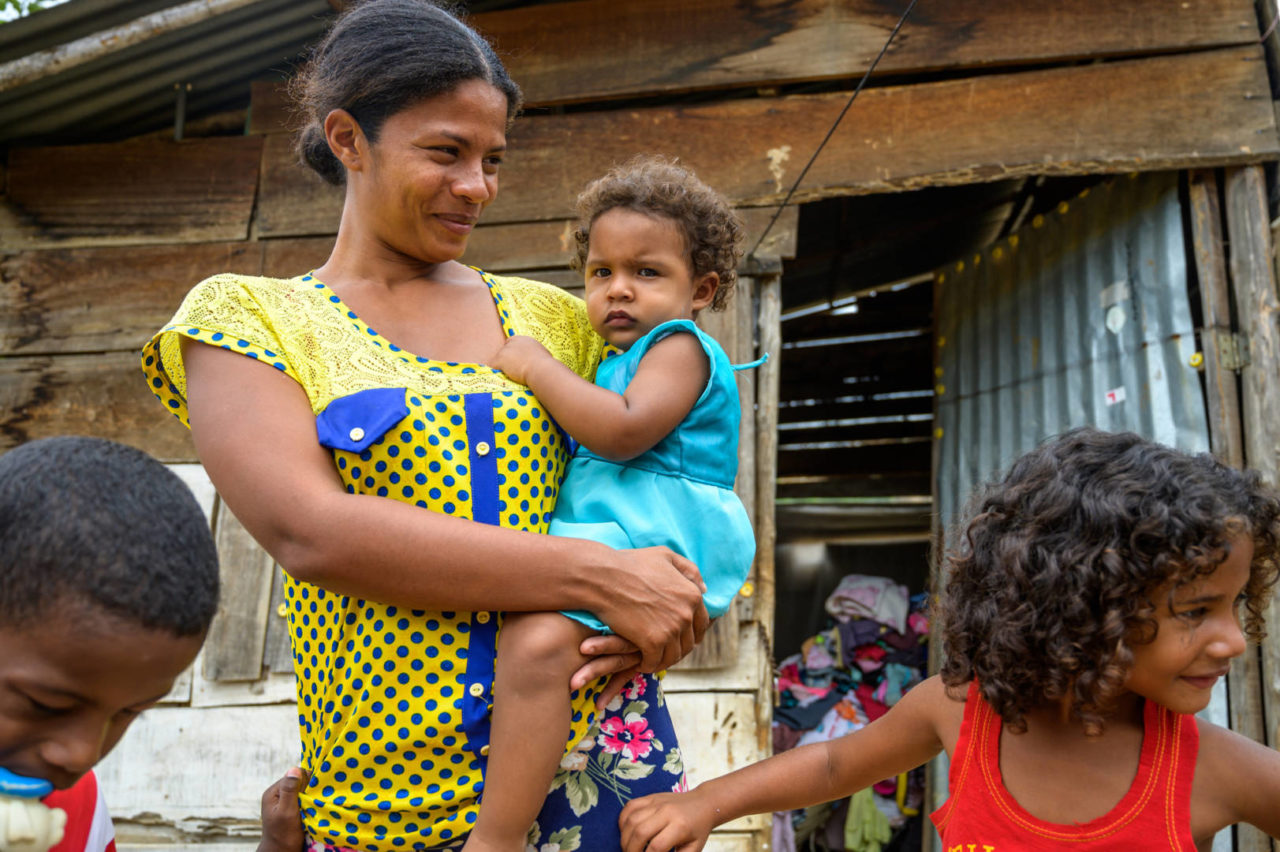
Mariangel Blanco, 26, can’t help but smile as she looks at 1-year-old Susej Pacheco in her arms. Susej’s plump limbs and bright eyes confirm that Mariangel and Elias, her husband, made the right decision to come to Colombia when they did.
“We left Venezuela because of hunger. My baby and I were both malnourished, and I was trying to breastfeed,” she says. That was seven months back.
They crossed the bridge with temporary permits but then decided not to go back.
“For the first few days, we slept on the street near the bridge. Then we connected with some friends who live here [in El Talento],” she says. They stayed with their friends for two weeks — “too long,” she says — but they found a small wood-and-tin house with an owner who was willing to let them stay there briefly for free.
“The situation for us is very hard, but we are getting by. It’s still better than in Venezuela,” she says.
World Vision’s food voucher program was a great help to tide them over when Elias couldn’t find day labor jobs. Their children also attend World Vision’s Child-Friendly Space, where they play, learn, and make friends. “They come home happy and singing,” says Mariangel.
Mariangel says her goals for her children are that they have a safe, happy, and normal childhood. “It wasn’t possible for them to have a normal childhood in Venezuela,” she adds.
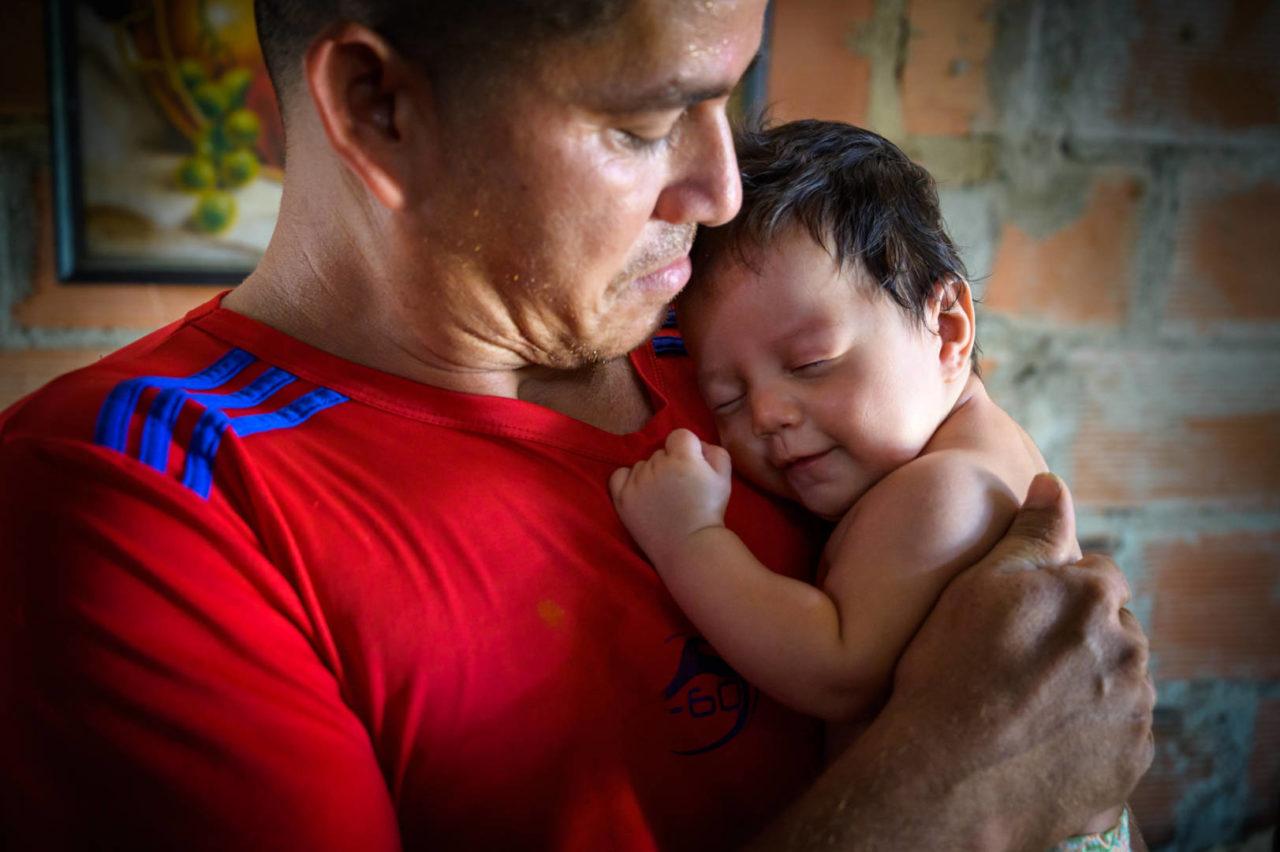
Yen Manuel Arriesta, 36, holds his 2-month-old daughter, Sheila. Eighteen months ago, he and his family left Venezuela and moved into a rundown rental house outside Cucuta, Colombia.
“It has been very difficult for us,” says Manuel’s wife, Sandra. “I am a Colombian, but I moved to Venezuela when times were bad here. I never thought I’d come back here.” Neither of them thought they’d ever need food assistance either, but food vouchers from World Vision have made a big difference in their lives.
Manuel had a house and land that he farmed in Venezuela. He lived there with Sandra and their children until he was bitten by a snake and became ill. Sandra came to Colombia for medicine and supplies, but with Manuel unable to work, they decided to relocate the family.
“All that I had in Venezuela is gone now. The government nationalized my farmland, and once we left the house, people were allowed to come in and take everything. They ransacked the place,” Manuel says. He would like to farm again, “But really, I’d take any opportunity to work, anything I can do.”
Food vouchers from World Vision and the World Food Programme have made a big difference for the family, Sandra says.
Photos by Jon Warren, ©2019 World Vision.
